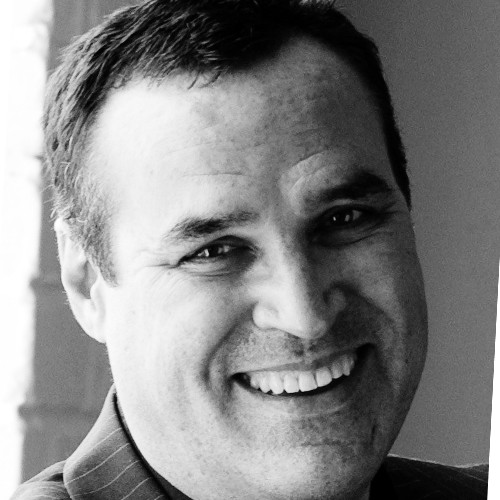Busting Americans’ 6 Most Common Myths About 2nd Citizenships and Residences
Reasonable Doubt
With David Lesperance
A contrarian expert on contingency plans for the wealthy delivers uncomfortable truths.
I have often been astounded at how few wealthy Americans (or their advisors) understand the many advantages of acquiring a second passport or establishing an alternative country of residence. Very few have ever really contemplated the potential rewards these tools offer, nor the disadvantages of the status quo. In some ways, that’s understandable because the topic can be pretty esoteric. Especially when you tack on other important topics such as taxation or inheritance-and-succession planning.
Fortunately, over the last few years, this lack of appreciation has been turning into genuine curiosity, for several reasons:
- Previously fringe “Tax the Rich” policies are becoming mainstream – including a possible wealth tax and the recently announced intention to double the capital gains rate;
- Covid-19 travel restrictions are bursting the assumption that Americans are free to travel wherever and whenever they want;
- The fear of Covid-19 is now strong enough to motivate wealthy Americans to overcome their “life inertia” and move from traditional locations such as New York City and Silicon Valley; and
- The clear partisan divide and disfunction of American politics is creating growing uncertainty in many spheres.
Unfortunately, many wealthy Americans still harbor some serious myths and misunderstandings about alternative residences and second citizenships.
In this detailed White Paper, I outline the basic concepts. Here, however, like Adam Savage from MythBusters, I will look closely at six widely-held myths and misconceptions about alternative residences and second citizenships – and bust them.
I will then lay out the logical reasons why a backup plan that includes an alternative country of residence and/or second citizenship can be a prudent strategy for many affluent Americans. And by replacing myths with a practical strategy, I hope I will provide a framework to help them overcome the understandable emotional resistance they might have.
I know whereof I speak
I grew up in the Canadian border city of Windsor with a father, siblings, and neighbors who worked in the auto industry in Detroit. I always thought it was normal that friends, family, and neighbors were dual Canadian-American citizens. I also understand the deep emotional attachment that Americans have to their US citizenship. For their entire lives, they have been pledging allegiance to the flag; hearing about American exceptionalism, and believing in “a shining city on the hill”.
The events of the past few years have clearly shaken these previously unquestioned beliefs in the minds of an increasing number of Americans. In reaction, many are looking into the idea of acquiring alternative citizenship and residence for the first time.
Myth 1: The US does not allow dual citizenship.
The US has allowed dual citizenship since Lyndon Johnson was in the White House. This fact is sometimes confused by the requirement that when entering the US or within the territory of the US, the presence of the foreign citizenship is ignored. For example, if an American is arrested within the US, they cannot access the diplomatic services of the country of their other citizenship.
It is also worth pointing out that the term “dual citizenship” is a bit of a misnomer. It is commonly used because in most circumstances an individual possesses only two citizenships. However, the correct term is “multiple citizenships”. This term refers to a lack of a limit to the total so long as no one country does not allow its citizens to possess other citizenships.
Myth 2: Lineage citizenships can be acquired quickly and easily.
Throughout most of the 19th and 20th centuries, the United States was a destination country for immigration. As a consequence of their heritage, many Americans are actually entitled to citizenship in “the old country”. The rules of qualification differ between each country; some allow citizenship to pass on even from grandparents or great grandparents. In addition, since 1950, Israel has granted citizenship to its Jewish diaspora under the Law of Return.
It is important to note that the eligibility rules in this area are constantly expanding and contracting. It is therefore critical not to rely on “common knowledge” or the rules that applied when a friend or family member acquired or was refused their lineage citizenship years before.
Another common mistake is a lack of appreciation of the process and time that it takes to successfully acquire lineage citizenship. I remember one wealthy American who thought that acquiring Irish citizenship would be easy and fast because he had a grandmother who was born in Ireland. Though he was certainly eligible, it would not be as easy as dialing 1-800-I-Am-Irish and having an Irish passport couriered to him. In fact, his application would be in a pile that included every Brit who also had an Irish ancestor and who had applied because of Brexit.
Since timing can be critically important, especially where a new citizenship is part of a tax plan, it’s best to move forward on these foundational components as soon as possible, as there is virtually no downside.
Myth 3: Acquisition of another citizenship automatically means tax liability in that country.
The United States deems individuals as “US Persons for Tax Purposes” using a variety of factors including physical presence, resident alien status, and citizenship. Moreover, US taxpayers are subject to US income, capital gains, gift- and estate tax on a worldwide basis.
Most Americans are unaware that the US is the only major country that uses citizenship-based taxation. Every other G20 country looks at physical presence and/or business and personal ties to determine if an individual is a taxpayer in its jurisdiction.
Therefore, the acquisition of another citizenship (with the noticeable exception of Eritrea) does not automatically make a person a taxpayer of that country. Only if the individual uses their citizenship to spend significant time or establish significant ties in the new country do they have to consider the possibility that they will become a taxpayer.
Myth 4: The acquisition of another citizenship or residence is considered “dodgy” or “unpatriotic”.
First off, the US government does not care if you acquire another citizenship whether through lineage, naturalization, or investment. The government considers it a private matter.
Second, only when an individual decides to renounce their US citizenship does the foreign citizenship become relevant, and even then only in two situations:
- when entering the US; and
- when opening and maintaining accounts at US and foreign financial institutions.
This good news gets better. Those who renounce their US citizenship and seek entry into the US in the future do not automatically need to seek a visa. Whether or not the individual needs a US visa will depend completely upon the passport that they are carrying:
- Canadian and Bermudan passport holders do not require a US visa to visit the US;
- Citizens of countries on the US Visa Waiver List do not require US visitor visas, so long as they travel in the required fashion; and
- The US requires all other countries’ nationals to first secure a US visa.
With regards to the financial accounts, as a result of FATCA, foreign financial institutions need to report, withhold and remit on the accounts of US taxpayers. However, after a US expatriate receives the Certificate of Loss of US Nationality, the financial institution no longer needs to take these steps.
Of course, when a new account is being opened, the financial institution will undertake their normal “Know Your Client” procedures. In doing KYC and looking at issues such as “source of funds”, the institution will undoubtedly examine the period of time prior to the expatriation. But the post-expatriation citizenship of the potential or existing account holder is actually irrelevant so long as the KYC and source of funds hurdles are cleared. So, clearly, not being an American actually makes life significantly easier for the US expatriates’ financial institution.
Myth 5: The whole family needs to expatriate in order to legally shelter the family wealth from US taxation.
In the vast majority of cases, it is enough for one family member to expatriate. With proper planning and coordination with the family’s other advisors, the family wealth can be properly protected from future US taxation, even upon succession.
Myth 6: An expatriate cannot ever come back to the US
Let’s be 100% clear: Many former Americans continue to visit the US after renunciation. Most seek entry as visitors, while some prefer to acquire some other non-immigrant work visa.
Many Americans mistakenly cite the 1996 Reed Amendment as a bar for re-entry of US expatriates. However, if you look at the legislation and its history, it is clear that it was never properly implemented. Furthermore, despite several half-hearted attempts to correct the legislation it remains a toothless tiger.
However, visiting former US citizens do need to be careful to avoid acquiring resident alien status or spending too many days in the US, as that would automatically lead to the presumption that they are “US taxpayers”. Indeed, the loss of this designation was most likely the reason that they renounced US citizenship in the first place. So again, a proper plan, proper execution, and careful monitoring thereafter are essential for former US citizens to continue to garner the advantages of renunciation.
David Lesperance is a global leader of international tax and immigration advisors.
A published author in the field, his personal interest in these areas of law grew from his experience working as Canadian immigration and customs officer while studying law. Since being called to the bar in 1990, he has established his expertise with major law firms, his own law firm and as a private consultant. David has successfully advised scores of high and ultra high net-worth individuals and their families, many of whom continue to seek his counsel today. In addition he has provided pro bono advice to many governments on how to improve their Citizenship by Investment, Residence by Investment or Golden Visa type programs to better meet the needs of his global clients. David is supported by a team of professionals, some of whom have worked with him since the early 1990s.




